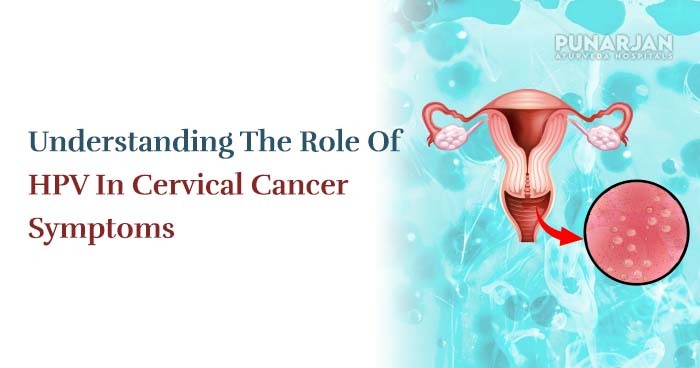
Human papillomavirus (HPV) is a common sexually transmitted infection that can lead to cervical cancer in some cases. While many HPV infections clear on their own without causing any symptoms, certain strains of the virus can persist and cause changes to cervical cells, eventually leading to cancer if left untreated.
Cervical cancer symptoms often do not manifest until the disease has progressed to an advanced stage. However, some women may experience warning signs such as abnormal vaginal bleeding, pelvic pain, pain during intercourse, and unusual vaginal discharge. It’s important to note that these symptoms can also be caused by other conditions unrelated to cervical cancer.
In most cases, HPV is harmless, but it can persist for years in some individuals. Survival can transform cervical cells into cancerous cells.
Let’s get further into the relationship between HPV and cervical cancer, looking at its types, treatments, and cervical cancer symptoms.
What Is HPV?
HPV is a viral infection that involves skin warts. There are more than 100 varieties of human papillomavirus that exist. While most HPV infections do not cause cancer, the genital ones carry risk. HPV infections can also lead to cancers affecting the penis, vulva, anus, and various other areas of the body.
Furthermore, this infection is mostly transmitted through skin or sexual contact. However, vaccines can protect individuals from the risk of cervical cancer.
Types Of HPV
HPV types can be divided into two categories – high-risk and low-risk.
High Risk
Human papillomavirus 16, 18, 31, 33, 35, 39, 45, 51, 52, 56, 58, 59, etc. are high-risk types. HPV 16 and 18 are responsible for the majority of HPV-related cancers.
Low Risk
These HPV types hardly cause cancer. They only result in warts in the anus, genitals, mouth, etc. However, warts or lesions in the respiratory tract or larynx can cause breathing issues.
How HPV Leads To Cervical Cancer?
HPV is most commonly transmitted through sex. It infects about 6.2 million people each year globally. A 50% risk occurs in both men and women throughout their lives. While women are highly susceptible between the ages of 15 and 25, men are also unsafe to HPV transmission.
HPV infections become asymptomatic in most women. This results in need for more regular tests. However, if the virus does not subside, the infections may persist, grow, and divide further.
The growth of the virus can range from medium to advanced degrees of cancer. The cancer stage will also depend on the same.
Cervical Cancer Symptoms
Early stages of cervical cancer hardly have symptoms. It may take years for cervical cancer to reflect initial symptoms. Advanced cervical cancer symptoms occur when the disease has spread to most body parts. Here are a few symptoms that will give you more clarity.
Early Signs And Symptoms
Early diagnosis and treatment of cervical cancer can lead to a cure. Recognising cervical cancer symptoms and promptly seeking medical advice is crucial. Women should consult a healthcare professional if they notice:
- Heavy, watery, bloody discharge with a foul odour
- Unusual bleeding from the vagina after intercourse, between periods, or post-menopause
- Heavy menstrual bleeding that lasts longer
- Pain during intercourse
Progression Of Symptoms In Advanced Stages
As this cancer progresses to advanced stages, individuals may experience a variety of cervical cancer symptoms, including:
- Difficulty in urination that may sometimes accompany blood
- Bleeding or pain from the rectum during pooping
- Feeling ill all the time
- Weight loss, reduced appetite, and fatigue
- Leg swelling & backache
- Unexplained pelvic pain
If you experience any of the above cervical cancer symptoms, contact a healthcare professional for advice.
Diagnosis And Treatment Options
Normal cervix cells gradually change into abnormal or irregular cells over time, which leads to the development of malignant growth. This is how cervical cancer occurs. Cervical cancer can be diagnosed based on cervical cancer symptoms and through various medical tests.
- A Pap test can be beneficial. It collects cervix cells and identifies irregularities. If a pap test comes back abnormal, more testing is needed.
- A cervix tissue sample is also taken for biopsy. Methods like endocervical curettage or punch biopsy are used for determination.
- Other tests for diagnosing cervical cancer include blood and urine tests, liver and kidney tests, x-rays of the rectum, bladder, etc.
Treatment options for cervical cancer depend on the cancer stage. Age and general health are other factors of concern. Here are a few cervical cancer treatment options –
- Radiation therapy is a common option to destroy cancerous cells. Brachytherapy and external beam radiation therapy are common types.
- Chemotherapy involves the injection of drugs through veins or mouth. The drugs enter the body and destroy toxic cells anywhere in the body. It follows a cycle based on the drug used for cancer treatment.
- Laser surgery, cone biopsy, cryosurgery, simple & radical hysterectomy, etc., are different surgeries used to treat cervical cancer.
- Another option is targeted therapy. It kills toxic cancer cells without impacting the healthy body cells. It is designed to better target the cancer cells.
- Immunotherapy helps the immune system fight cancer better by using medications. Some cancer cells can hide from the immune system, but immunotherapy tries to stop them from doing that. It’s a strong way to help the body fight cancer.
Prevention Strategies For Cervical Cancer
Here are several preventive strategies to reduce the risk of cervical cancer:
- Having intercourse at an early age and with too many partners increases the risk. Preventing these minimises cervical cancer risks.
- Having pap tests at regular intervals can help keep better track.
- Those with HIV have a higher risk of getting diagnosed with HPV. Hence, regular tests and monitoring are essential.
- Smoking cigarettes increases the risk and must be avoided.
- Long-term usage of birth control pills must be prevented.
- A weak immune system is unable to fight against infections and diseases. Steps must be taken to increase immunity in general.
- Three to four or more pregnancies increase the likelihood of cervical cancer. Avoiding it or monitoring it can prevent the disease.
How Do We Treat This Issue at Punarjan Ayurveda?
When dealing with cervical cancer challenges, we at Punarjan Ayurveda have a unique approach. We combine traditional wisdom with modern innovations. Our goal is to support women with herbo-minerals, detox methods, lifestyle changes, etc.
At Punarjan Ayurveda, we understand the emotional and physical pressure on women facing cervical cancer. We consider cervical cancer symptoms when treating the disease, while our research team focuses on creating personalised treatment programs to meet each patient’s unique needs.
Our approach goes beyond treatment. We provide constant support, information, and guidance through our counsellors and therapists. We aim to raise awareness among all women and equip them with the resources to take charge of their health.
Punarjan Ayurveda values your health and embraces Ayurvedic wisdom to offer specialised care. Let’s join forces to combat cervical cancer with Ayurvedic mulikas, Bhasmas, Rasayana elixirs, and therapies like Vamana.
Our treatments target the disease while strengthening the body’s overall resistance. Here are a few steps used to treat the condition –
- Ayurveda Medications – Ayurveda medications restore dosha balance. Ingredients like Ashwagandha, Shatavari, Guduchi, etc., slow down the multiplication of cancerous cells. They target disease-causing cells while promoting natural healing.
- Cleansing Techniques – Cleansing techniques in cervical cancer treatment at Punarjan Ayurveda follow Ayurvedic practices. Therapies like Vamana & Rakyamokshana eliminate doshas and reduce the triggering of mutations.
- Boosting Immunity – Immune-boosting methods enhance the body’s defence mechanisms. Rasayana elixirs like Chyawanprash enhance antioxidant activities in the body. This helps better fight carcinogens and tumorigenesis.
- Dietary Adjustments – Dietary adjustments support overall health and strengthen the body’s resistance. Incorporating specific nutrients and promoting a balanced diet helps the body combat the disease.
Conclusion
Being diagnosed with cervical or any form of cancer is scary. Having a better understanding of cervical cancer symptoms and treatment options helps. Early detection assists in treating the disease well. The detection of HPV infection has become easier with the advanced options. Besides, the HPV vaccine further indicates a bright future.
By raising awareness, providing specialised care, and empowering individuals to take charge of their health, we at Punarjan Ayurveda strive to make a meaningful impact in the fight against cervical cancer.
FAQ
What Are The Symptoms Of HPV In Females?
Most women do not experience any HPV infection symptoms. An abnormal pap test result is a reliable way to identify the condition.
How Do You Know When HPV Turns Into Cervical Cancer?
An HPV screening test is available that can detect HPV strains linked with cervical cancer. It is the best way to confirm if HPV has turned into cervical cancer.
Who Is At High Risk For HPV?
Individuals who engage in sexual activity at a young age, particularly before reaching 18, or have multiple sexual partners are more likely to become infected with a high-risk type of HPV.
Can I Boost My Immune System To Fight HPV?
Maintain a healthy lifestyle with a balanced diet and regular exercise. Also, consider vaccination and consult with the healthcare provider for immunotherapy options.
Exercise Help HPV?
Exercise indirectly supports immune function, which may help in managing HPV infections. However, exercise alone does not directly impact HPV. It is important to consult with a healthcare provider for appropriate management and treatment options for HPV.


